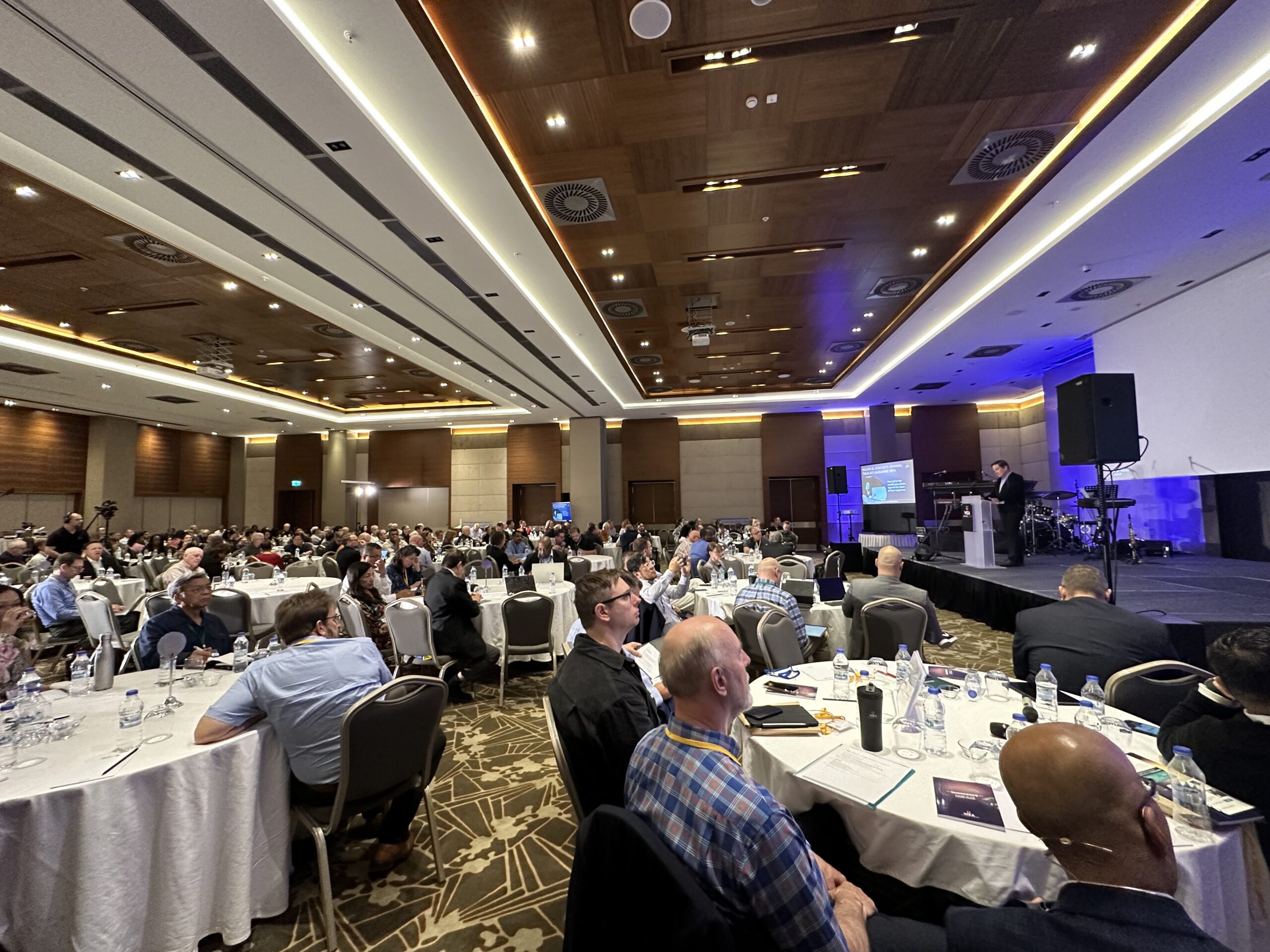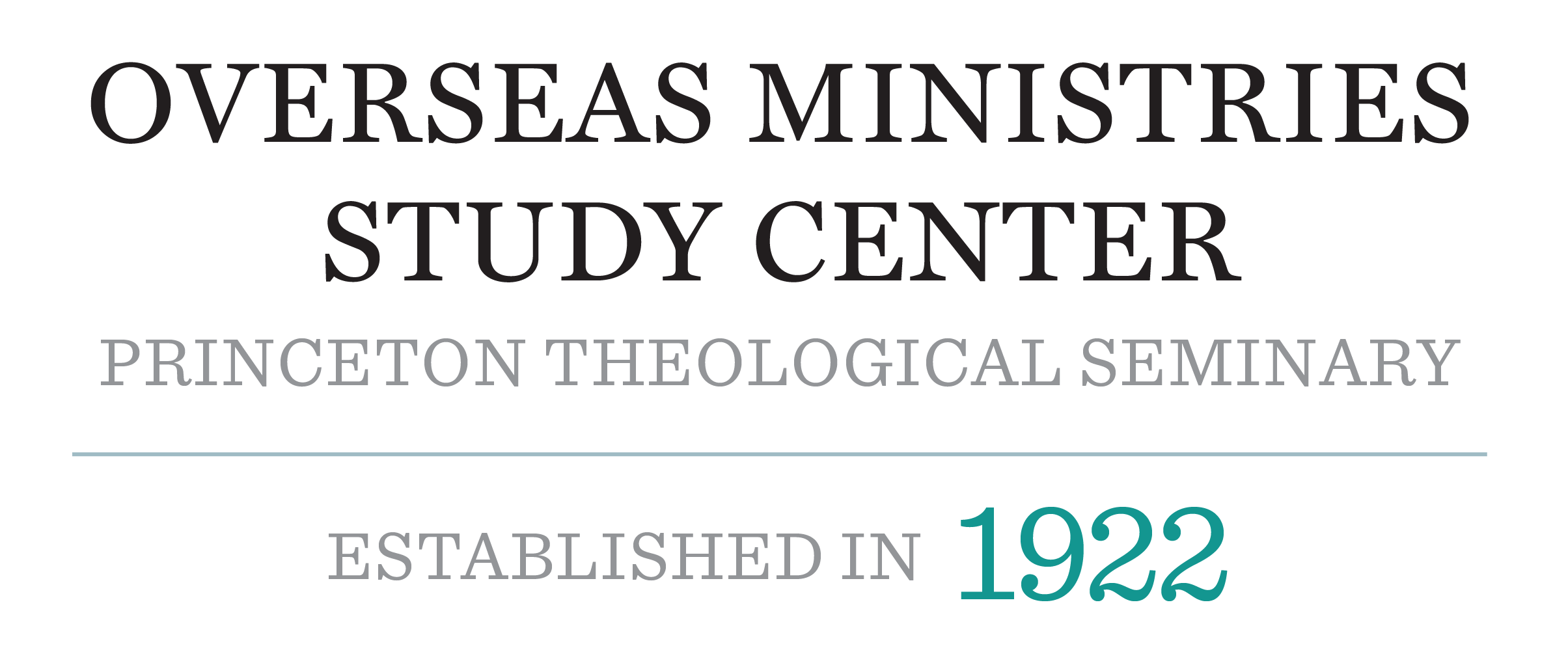by Todd M. Johnson, Ph.D. – Co-Director – Center for the Study of Global Christianity
This post is part of The Occasional’s “Numbers and Trends” series, dedicated to sharing work, analysis, and perspectives from our friends and partners at the Center for the Study of Global Christianity based at Gordon-Conwell Theological Seminary.
In October 2023 I had the privilege of joining 250 Evangelicals from 65 countries in Istanbul, Türkiye to discuss the Future of the Gospel. The forum was structured so that dozens of us gave 15-minute overviews of our subjects which were then discussed around tables and in small groups. My assignment was to summarize the gospel among all peoples from the standpoint of the findings of the World Christian Encyclopedia. What follows is the text of my talk, which was accompanied by maps, charts, and photographs. My main points are shown in bold type. More detailed arguments are made in the two published pieces at the end.
The future of the gospel is for all peoples and from all peoples. The scope of the future of the gospel is seen in Revelation 7:9 where all peoples worship the Lamb at the throne—a global vision of the diversity and equality of peoples. The Unreached Peoples movement was a direct response to this biblical vision.

In 1974, Ralph D. Winter, professor at Fuller Theological Seminary, gave a seminal talk at Billy Graham’s gathering of Evangelical leaders in Lausanne, Switzerland. Quite simply, he showed that if every Christian witnessed to their neighbor, then one-half of the world’s population would not hear the gospel. This is because most neighbors of Christians were Christians and most non-Christians had no Christian neighbors. To address this shortfall, Ralph and Roberta Winter started the US Center for World Mission to highlight hidden or unreached peoples who were not reached with the gospel. (I married their youngest daughter Tricia in 1983). Almost 50 years later, through the lens of the World Christian Encyclopedia and our 10-volume Edinburgh Companions to Global Christianity series, I’ve come to see at least five challenges to the future of that vision.
First, in 1900, Evangelicalism, demographically, was a Western faith, with 92% of all Evangelicals in Europe and North America. Only 8% of all Evangelicals lived in Africa, Asia, Latin America, and Oceania, known today as the Global South or Majority World.
By 2020, this grew to 77%, representing an epochal shift to the Global South. Yet, Evangelicalism is still characterized as a Western faith, with those perspectives normalized in theology, spirituality, leadership, and other areas. For example, Western Christians do “theology” while non-Westerners do “contextual theology.” Latino theologian Juan Martínez’s warns: “One of the most important contributions contextual theologies can make to U.S. evangelical theology is to help it name itself as a contextual theology. Because of the outsized influence of U.S. evangelicalism, it will be particularly difficult for it to name its theologies as contextual. But until that happens all ‘minority’ theologies will be marginalized.” The gospel for all peoples is hampered by its overidentification with the West. Unreached peoples should encounter a global Jesus, not a Western Jesus.
Furthermore, Evangelicals in the Majority World are not treated as equals. Allow me to illustrate this further. While commemorating 500 years of the Protestant Reformation at an Evangelical conference in Wittenberg in 2017, I presented research showing that over 40% of all Protestants were Africans. Yet, out of the 100 people at the meeting, only a few were African. I was sitting next to a leader from Ghana when someone from the stage said that Africans were welcome at the table in this Evangelical movement. It was then that my colleague quietly recounted a Ghanaian proverb to us: “It is good if you invite me to your table, but it is far better if you invite me into the kitchen.” His point was clear: Why are Evangelicals from the Global South simply invited to a Global North table when they should be found with everyone else in the kitchen? Why, in light of a gospel for all peoples, are Black, indigenous and people of color (the majority) invited to a White table (the minority) to strategize about reaching all peoples?
The second challenge is that peoples farthest from Christianity receive the least attention. Our best estimate is that today 28% of the world’s population or 2.2 billion individuals have never heard the gospel, found in thousands of people groups and languages. While this was 45% in 1974, we project that by 2050 it will still be 28% or 2.7 billion individuals. The reasons for this plateau are simple: peoples who have not heard of Jesus have high birth rates and Christians continue to spend most of their resources (over 85%) on outreach to other Christians. We estimate that over the past 50 years, Evangelicals have invested 100 times more church planting efforts where there are already Christians than where there are few. At the same time, it is encouraging that outreach among some of the least reached peoples has resulted in significant movements to Christ. Most of these are highly indigenous and focus on multiplying churches and disciples.
Sadly, some of the least reached peoples have been under siege by Western military powers. We have to remember that at the time of the Lausanne meeting the United States was mercilessly bombing places like Laos and Cambodia. The Hmong, in particular, were driven out of their homes into refugee camps. Many arrived in my home state of Minnesota to make a new life for themselves. Some have become Christians and offer fresh perspectives on the global gospel even though they were terribly mistreated. But this is a cautionary tale of how power and aggression compromises gospel witness.
In addition, today most non-Christians have little or no personal contact with Christians. Broadly speaking, Buddhists, Hindus and Muslims have relatively little contact with Christians, and this has not changed much in the last two decades. An estimated 87% of Buddhists, Hindus and Muslims do not personally know a Christian. Hearkening back to Winter’s talk in 1974, this finding reinforces the fact that Christians are still separated from those furthest from the gospel. If non-Christian peoples are to hear the gospel, Evangelicals must be willing to cross cultures, learn languages, build friendships, and become religiously aware, both at home and abroad.
Furthermore, Christians in the Global North generally are not adept at interacting with people of other religions, yet, with their resource base, they have the most to say about it. One recent study in Singapore found that 9 out of 10 Singaporeans are comfortable living and working with people of different ethnicities or religions. In the Global North, similar polls show results closer to 1 or 2 in 10. But it is Christians in the Global North who write most of the books about people in other religions! Xenophobia, nationalism, and antisemitism are increasing in North America and Europe. It’s clear to me that Christians in Asia, who are used to living in multi-religious contexts, should be leading the way in how to love and interact with people of other religions.
The third challenge is that women do most of the work but are not included in leadership. Surveying Christian activities around the world for the World Christian encyclopedia we saw how women play a vital role in churches around the world, ranging from ordained pastoral leadership to healthcare and education. In short, there is no gospel for all peoples without the contributions of women. What role will women play in global Evangelical leadership? There is strong evidence that the pandemic is better navigated by women leaders than men. Some believe this is because societies that are comfortable electing women to top positions are also more likely to listen to varying points of view. Yet, despite this reality, the vast majority of leaders in Evangelical mission are men. Understanding the global Christian context means overcoming this limitation and favoring the voices of women to truly represent what is happening in our communities.
The fourth challenge is that proclamation and demonstration (integral mission) are essential to the gospel. Two streams flow from the Lausanne 1974 meeting: a call to address the unreached peoples of the world and a call to minister to the poor and advocate social justice. Evangelicals may diverge in opinion on the place of social activism but the Scriptures are clear that concern for the poor, the refugee, or the stranger are not optional. Social concern recognizes the inherent value of all humanity based on the concept of all created in the image of God. Christians from the Global South are leading us with a more intuitive sense of integral mission.
Fifth, most Pentecostals are Evangelicals but have not had a voice in global Evangelicalism. Depending on how one counts, one third to one half of all Evangelicals are Pentecostals or Charismatics, but they are underrepresented in most conferences, consultations, or books. Pentecostals/Charismatics are even more proportionately present in the Global South (86%). Pentecostals are the most well placed for mission to those currently without access to the gospel. Research has shown that they are deeply engaged in social justice around the world. Pentecostals have a vital role in the gospel for all peoples.
In conclusion, we live in an age of global Evangelicalism, where the typical Evangelical is a poor young woman from the Global South. Yet Evangelicalism is considered by many as a Western faith. Fortunately, Western perspectives can be both acknowledged and decentered, no longer considered as the standard for all to follow, while global voices increasingly represent who we are. In fact, our global diversity, which has increased greatly since 1974, is a major reason that new peoples will join us, seeing the evidence that their languages and cultures are precious to Jesus. In addition, we live in an age of increasing religious fervor and diversity around the world where churches of the Global South are taking the lead in interfaith relations and mission. Finally, our path forward in global Evangelicalism is recapturing our responsibility to all peoples, prioritizing those peoples furthest from the gospel. The gospel will be preached and demonstrated among all peoples. The future of the gospel is for all peoples and from all peoples.
Sources (including original footnotes)
Todd M. Johnson, “Evangelical Mission in an Age of Global Christianity” in Kenneth Nehrbass, Aminta Arrington, & Narry Santos, editors, Advancing Models of Mission: Evaluating the Past and Looking to the Future (Littleton, CO: William Carey Publishing, 2021), 189-202.
Todd M. Johnson, “Evangelicals Shift to the South, 1900-2020: Decentering Western Perspectives and Building Global Equality.” in Journal of Biblical and Theological Studies, Vol. 8, No. 2, November 2023, 111-128.




